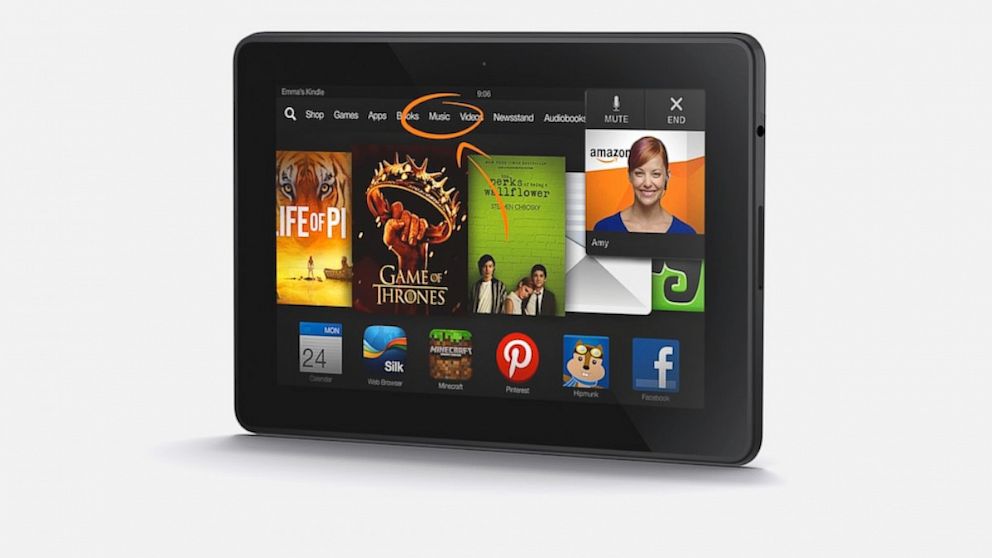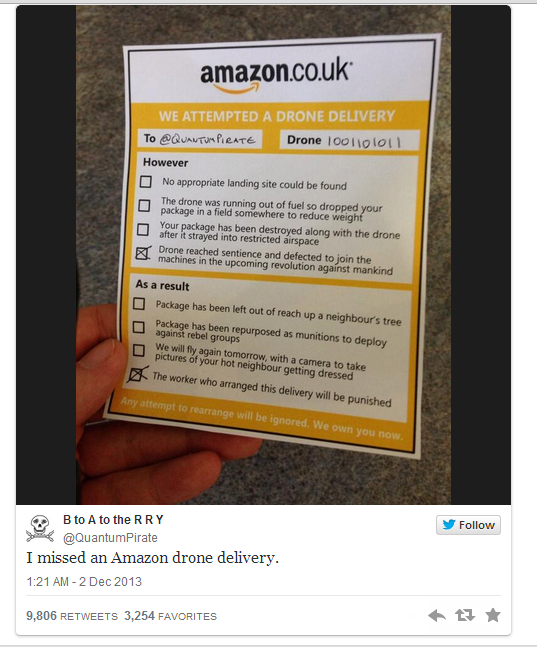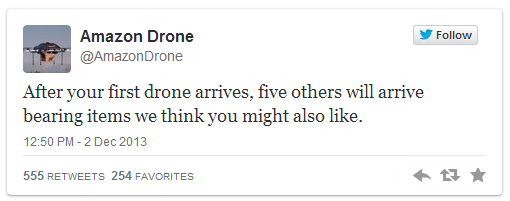Amazon is ending 2013 on a curious note. Just a few months ago, they wowed customers and garnered praise for their launch of Mayday, an instant video customer service platform embedded in their latest line of Kindle Fires.
However, for the past few weeks the Internet won’t let the company downplay CEO Jeff Bezo’s announcement that Amazon might use drones to deliver packages in the future. It’s become enough of a joke that it was even lampooned on The Daily Show and Colbert Report. So what succeeded here? And what failed?
People Want Instant (Personal) Customer Service
Mayday’s concept is simple. By pressing the Mayday button on your Amazon Kindle Fire’s screen, an agent will respond within twenty seconds or less, appearing via video on your screen.
Thankfully, they won’t be able to see you laying on your couch in your pajamas with that half-eaten bag of Cheetos by your side. They can walk you through just about any problem (they are supposed to be for technical support, but consumers have found the agents will try to help with almost anything), as well as take control of your screen and guide you through the process. This video gives the best rundown of the feature.

The reviews of Mayday have been excellent. It’s fast, simple, available 24/7 and reliable, the key principle a customer desires in customer service. Mayday’s big debut has made other companies take notice. Other companies not used to this technology are eagerly talking about how Mayday forces them to compete with near-instant video customer service, if it’s right for them, and how they can deploy it.
It certainly doesn’t hurt that Amazon announced it had record Thanksgiving sales for the new Kindle Fire (which comes pre-bundled with Mayday).
Technically, Amazon never publishes those numbers, yet a recent report announced that Kindle users spend on average $400 more on Amazon than non-users. That’s an incredible amount, no doubt in part because of the ease of access to the site that users are given with the interface.
Mayday only makes it easier for those still learning the ropes of owning a tablet. Therefore any increase of Kindle Fire tablets in the hands of consumers combined with an easier way to receive tech support is a win for Amazon.
With talks of big numbers and positive customer experience reviews, it’s easy to see why someone would want to implement a similar service.
People Do Not Want Drones
Whatever goodwill Mayday brought Amazon has been disappearing, though. The announcement that Amazon would begin delivering packages via GPS-guided drones prompted bemused, snarky, and downright negative comments. The video that followed didn’t help.
Twitter showed the the most humorous reactions, with quick witted responses and an Amazon Drone parody account sprouting up. Groupon even took the opportunity to make fun of Amazon (and promote themselves) with a spoof.
Reporters jumped on the bandwagon, too. ABC called Amazon’s hypothetical drones more of a problem than a solution, and Forbes pointed out that the promotional video wasn’t even shot in America, because Amazon’s usage of drones is currently illegal in the United States.

Over the past two years, the world hasn’t had favorable interactions with drones. Their use overseas as instruments of war, both in combat and in surveillance has affected the public’s perception of autonomous aerial vehicles.
Occasionally, they hit the wrong targets, causing unwarranted casualties. And in the U.S., Congress signed a law that allows drones to be used on U.S. soil and on civilians, which has only worsened opinions.
With hunting licenses for drones being petitioned just this last summer and overall unease about the unmanned vehicles still high, it’s hard for most to see drones as instruments of good.
Certainly they can be used positively, but their threat is so ingrained in the public consciousness that people aren’t open to the idea of them flying over their houses to deliver packages. Even Groupon’s spoof video suggested that the Amazon drones could be watching you as they deliver your packages.
It’ll take a few years for consumers to grow comfortable with the idea of drones performing more mundane tasks, but right now, they’re unfortunately viewed by many as tools that violate people’s privacy and can be used as weapons.
The Amazon Drone parody account took off shortly after the announcement
You might say that “any press is good press,” but this incident really shows how a company can get ahead of itself, as well as its customers.
Bezos should receive some credit for thinking outside of the box. However, the public is not ready for drones. They are ready for embeddable video customer service where they can connect with a real human being, though. And hopefully Amazon can stick with that instead on focusing on robots.
